Tuesday, February 18, 2025

When
2025 Rural and Public Health Policy Forum Agenda
In support of improving patient care, these selected activities have been planned and implemented by the Arizona Center for Rural Health and the Western Region Public Health Training Center (WRPHTC). The WRPHTC is jointly accredited by the Accreditation Council for Continuing Medical Education (ACCME), the Accreditation Council for Pharmacy Education (ACPE), and the American Nurses Credentialing Center (ANCC), to provide continuing education for the healthcare team.
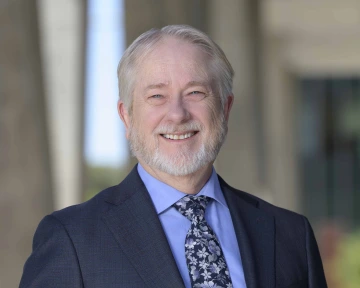
Daniel Derksen, MD, Director, Arizona Center for Rural Health
University of Arizona Health Sciences Associate Vice President for Rural Health Workforce Development Initiatives. He is a tenured Professor of Public Health in the Mel and Enid Zuckerman College of Public Health with joint appointments in the College of Medicine and the College of Nursing. His current service, education and research activities include informing legislative, regulatory and program policy to improve access to health care and health insurance coverage; narrowing health disparities; developing, implementing and evaluating interprofessional service-learning sites; and working to assure a well-trained and distributed health workforce to meet the health needs of all Arizonans.
Governor Hobbs' administration is addressing health disparities through informed, evidence-based, collaborative policymaking. Update on Governor Hobbs' health policy priorities for 2025 and beyond: how it started / how it's going - how efforts at the Executive level can improve access to affordable, accessible, high-quality care in every corner of Arizona, insights into the Governor's priorities and proposed strategies to improve and sustain rural and public health in Arizona
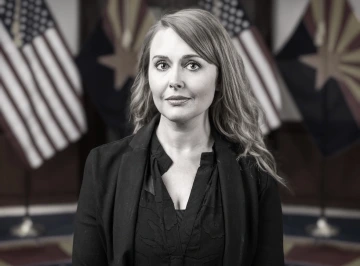
Zaida Dedolph Piecoro, Health Policy Advisor, Office of the Governor
Zaida Dedolph Piecoro (She/Her/Hers) Name pronunciation: Zeta DEE-dolf puh-CORE-oh For the past decade, Zaida has worked to address the social, economic, and political factors that influence wellbeing in her home state of Arizona. While earning her BS in anthropology and bioethics from Loyola University Chicago and MPH from the University of Arizona, Zaida worked in a range of health and human service roles in direct service and systems-level advocacy. In her career, she has worked to end intimate partner violence, promote the civil rights of individuals living with mental and behavioral health conditions, and to promote food security, economic equity, fair housing, and access to high-quality, affordable healthcare. Zaida has had the honor of serving as health policy advisor to Arizona Governor Katie Hobbs since January 2023. She is an avid gardener and spends her spare time debating the big issues with her precocious kindergartener (he usually wins).
The 2024 presidential election will have profound impacts on federal health policy and the future of the U.S. Supreme Court. This session will examine the current and projected impacts on federal health agencies, regulatory authorities and oversight, and health priorities, which will have an impact in our state. A close examination of salient health-related cases currently before the U.S. Supreme Court will also be explored with projected outcomes and repercussions for the health of populations.
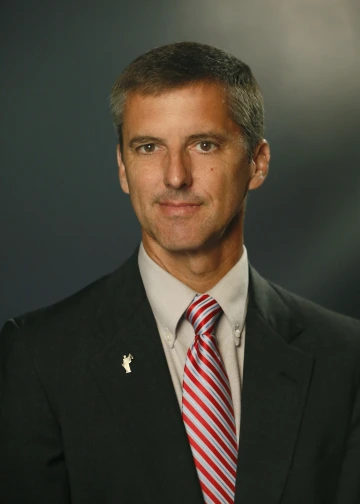
James G. Hodge, Jr., JD, LLM, Professor, ASU Sandra Day O'Connor College of Law
James G. Hodge, Jr., JD, LLM, is the Peter Kiewit Foundation Professor of Law and Director of the nationally-ranked Center for Public Health Law & Policy at the Sandra Day O’Connor College of Law, Arizona State University. Through scholarship, teaching, and projects, he delves into multiple areas of health law, public health law, global health law, ethics, and human rights. Professor Hodge has published more than 300 articles in journals of law, medicine, public health and bioethics; 2 books in public health law; 25+ book chapters; dozens of reports; and guest edited 4 symposium issues. He is listed among the Top 20 Most-Cited Health Law Scholars in Web of Science (2013-2017) and is ranked above the top 1% of all downloaded authors internationally in the Social Science Research Network (SSRN).

Leila Barraza, JD, MPH, Director, Arizona Area Health Education Centers Program, Associate Professor, Public Health Practice & Translational Research, Interim Department Chair, Public Health Practice & Translational Research, Mel and Enid Zuckerman
Leila Barraza is Associate Professor at Mel and Enid Zuckerman College of Public Health, University of Arizona. She is the Director of the Arizona Area Health Education Centers program (AzAHEC). She also serves as a Senior Consultant with the Network for Public Health Law – Western Region Office. Her research interests include studying the impact of laws and regulations on population health. Barraza received a Master in Public Health from the Zuckerman College of Public Health at the University of Arizona in 2004. She worked for the Center for Rural Health (formerly Rural Health Office) at the Zuckerman College of Public Health following the completion of her master’s degree. Barraza provided assistance to rural and tribal hospitals and clinics regarding new medical designation opportunities, health practitioner recruitment, emergency medical services, and funding opportunities. She received her J.D. with a Certificate in Law, Science, and Technology from the Sandra Day O’Connor College of Law, Arizona State University, in 2008. Following her graduation from law school, Barraza served as a law clerk for the Arizona Court of Appeals, Division One from 2009-2012. Prior to joining the Zuckerman College of Public Health as an Assistant Professor in 2014, Barraza served as Deputy Director of the Network for Public Health Law – Western Region Office, and a Fellow and Adjunct Professor in the Public Health Law and Policy Program at the Sandra Day O’Connor College of Law. Barraza has been published in several scholarly journals, including JAMA, AJPH, Public Health Reports, Jurimetrics Journal, Annals of Health Law, and Journal for Law, Medicine, and Ethics. Barraza has also provided numerous presentations at national and local conferences on a variety of critical public health law issues. She instructs a public health law course for public health and law students and has given special lectures in health law and public health law courses.
Auditorium
Tribal Health Policy Focus
Corey Hemstreet, Legislative Specialist, Arizona Adivsory Council on Indian Health Care
Corey Hemstreet is the Legislative Specialist for the AACIHC and serves as the agency's designated tribal liaison for workgroups. She is a tribal citizen of the Navajo Nation and was born and raised on the western side of the Navajo reservation in Tuba City, Arizona. She has a profound passion for advancing health equity in tribal communities through program and policy development and advocacy, and has worked in the realm of tribal public health for 6+ years as a community health representative, health program manager, tribal liaison, and a graduate research assistant. She received her undergraduate degrees in Justice Studies and American Indian Studies from Arizona State University and received her Master's in Public Health from Northern Arizona University.
Room 2206
Beyond the Urban Heat Island: Rural Arizona's Heat Vulnerability
This presentation examines the often-overlooked impact of extreme heat on rural Arizona communities. We will review heat risk data against a backdrop of healthcare access in rural communities to understand rural heat risk. This session will examine rural-specific factors such as socio-economic, household, and health characteristics contributing to heat risk. The presentation aims to raise awareness about the growing threat of extreme heat in rural Arizona and provide actionable strategies for rural health departments, community organizations, and healthcare providers to build heat resilience.
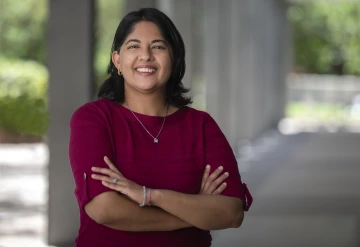
Mona Arora, PhD, MsPH
Dr. Arora, Principal Investigator for SCORCH, is an Assistant Research Professor in the Zuckerman College of Public Health. She brings expertise in GIS, program evaluation, and survey design and implementation. Recently she conducted a national workforce assessment of the public health system’s capacity to protect against the health consequences of climate change. Dr. Arora has served on several national committees, including the Lancet Countdown U.S. Policy Brief Working Group, National Adaptation Forum Program Committee, and the National Association of City and County Health Official’s (NACCHO) Workgroup on Global Climate Change. She obtained her Master of Science in Public Health (MSPH) degree in Tropical Medicine from the Tulane University School of Tropical Medicine & Hygiene and has a doctorate degree in Geography from the University of Arizona.

Brianna Rooney, Assistant Research Professor, Arizona Center for Rural Health
Brianna Rooney, DrPH, is an Assistant Research Professor at Mel and Enid Zuckerman College of Public Health, Department of Public Health Practice, Policy and Translational Research. She leads programs supporting rural hospitals and advancing health equity, focusing on resilience in rural and tribal healthcare communities. Her expertise includes program evaluation, qualitative research, and emergency response planning. Dr. Rooney's research explores compounding risks in healthcare systems, emphasizing equitable policies and hazard management. She collaborates with health agencies statewide, blending technological and socioeconomic approaches to reduce disparities and enhance public health. She serves on national committees for healthcare emergency preparedness.
HSEB B302
Medicare Advantage plans

Helena Whitney, Senior Vice President, Policy and Advocacy, Arizona Hospital and Healthcare Association
Whitney has deep expertise in both Arizona and federal health policy as well as an understanding of health policy and programs in other states. Notably, she most recently served as an associate principal at Health Management Associates (HMA), a prominent nationwide healthcare consulting firm. Whitney started her health policy career at the Arizona Legislature serving as a senior health and human services policy advisor in the state House of Representatives. She also worked at the University of Arizona Health Network as the vice president of government relations & legislative affairs. Whitney received her Master of Social Work degree with a concentration in public policy and her Bachelor of Arts in Social Work degree from Arizona State University
Attorney General Kris Mayes
Kris Mayes is one of Arizona’s strongest consumer advocates and an attorney who has distinguished herself as a fighter for the people in a lifetime of public service.
Born and raised on a tree farm in Prescott, Kris Mayes attended Arizona public schools with her brother and sister. Her mom was a teacher and her dad worked as a pharmacist.
Kris studied political science and journalism at Arizona State University and went to work as a reporter. She later earned a Masters of Public Administration from Columbia University and her law degree from ASU.
Kris served in a senior role with the Napolitano Administration in the early 2000’s before being appointed to the Arizona Corporation Commission. She went on to win two statewide elections and served as a Commissioner from 2003 - 2010 and was the Commission Chair from 2009 - 2010. Kris was admitted to the Arizona State Bar on January 10, 2005.
During Mayes’ time on the Arizona Corporation Commission, her leadership helped create tens of thousands of high-paying jobs, saved Arizona consumers billions of dollars, and required utilities to produce more clean and efficient energy — including solar and wind. She also worked to preserve Arizona’s water resources.
Prior to her election as Attorney General, Mayes worked as a professor at ASU’s School of Global Sustainability and taught a course on energy law for the Sandra Day O’Connor College of Law at ASU.
She is honored to serve as Arizona’s 27th Attorney General, becoming the first mom and second woman ever to be elected to the office. She looks forward to continuing working on behalf of Arizonans as the top law enforcement official and consumer guardian in the state. A Lawyer for the People.
"Good morning, and thank you for the opportunity to be here today. I’m Attorney General Kris Mayes.
Before we turn to the pressing issue of the opioid and fentanyl crisis, I want to provide an important update on a recent development that affects the future of medical research and public health funding.
Just a week or so ago, the Trump administration announced a policy change that would have slashed indirect cost reimbursements for federally funded research, cutting support for essential expenses like lab space, research equipment, and administrative support.
These cuts threaten critical medical research, including opioid addiction treatment studies and advancements in pain management.
I don’t have to tell you that this would cause enormous harm to Arizona’s universities, research institutions, and hospitals. But along with my fellow attorneys general, I took legal action to stop the cuts from taking effect.
On behalf of the people of Arizona, I sued to block these NIH funding cuts—and we have been successful in securing an initial ruling preventing their implementation.
This means, for now, the funding that supports life-saving medical research will remain in place. And we’ll keep fighting in court to make that victory permanent.
And this issue only underscores just how important it is to protect funding for public health initiatives, which brings me to the reason we are here today—the opioid and fentanyl crisis that continues to devastate communities across our state.
Each of you in this room has seen firsthand the impact of this epidemic. You’ve treated overdose victims, counseled families in distress, and worked to expand services in communities struggling to keep up. You don’t need statistics to understand the severity of this crisis—you confront it every day.
According to the DEA, while overall overdose deaths have declined for the first time since 2018, fentanyl remains the most significant drug threat facing our nation.
In 2023, over 107,000 drug overdose deaths were recorded in the U.S., with nearly 70 percent involving opioids like fentanyl. This is an improvement from past years, but the crisis is far from over.
Here in Arizona, we continue to lose more than five people every day to opioid overdoses – but these are preventable deaths.
In Maricopa County, fentanyl now accounts for 60 percent of all drug-related deaths, a 4,900 percent increase since 2015. And the crisis is not slowing down in rural areas—if anything, and it is exacerbated due to a lack of resources.
Since taking office two years ago, I have made it a priority for my office to work in lockstep with federal law enforcement, the DEA, sheriffs, and local agencies to investigate and prosecute these criminals.
Arizona has become ground zero for the fentanyl crisis—more than half of all fentanyl seized in the U.S. is seized in our state. This crisis has devastated communities, torn families apart, and increased overdose deaths.
Since I took office, my office—with support from local and federal law enforcement partners—has seized 25 million fentanyl pills in Arizona.
We have also seized over 405 pounds of fentanyl powder—enough for nearly 92 million potentially lethal doses.
But despite these interdiction efforts, rural communities across our state continue to bear the brunt of this crisis. Last year, I worked closely with the Legislature to craft an expenditure plan to best use these dollars to support Arizonans in need.
I traveled across the state from Kingman to Bisbee to hear what rural communities needed from the state. The expenditure plan we put together identified urgent needs that should have been funded, including:
$15 million for detox centers in rural counties like Graham, Mohave, and Cochise, where people struggling with addiction often must travel hours to access life-saving treatment.
- $10 million to expand medication-assisted treatment (MAT) in rural areas, a proven method of helping people stay in recovery.
- $600,000 for naloxone vending machines in courthouses statewide and to ensure every school nurse has access to Narcan.
- $15 million for opioid prevention training for school counselors, so they could identify and intervene with at-risk students before addiction takes hold.
- $9 million for regional emergency shelter programs to provide shelter to adults and families experiencing homelessness.
These programs were designed with community input and would have saved lives, kept families together, and made our communities safer and healthier.
But instead, the legislature and governor swept $115 million of these opioid settlement funds to cover a budget deficit in the state’s prison system for Hepatitis C treatment.
Don’t get me wrong, funding the healthcare of those incarcerated is a critical need and responsibility of the state – but not at the expense of rural Arizonans struggling with addiction.
And to make matters worse – the vendor that was chosen to receive opioid settlement funds to pay for the Hep C treatment just happened to be Cardinal Health – one of the very defendants that caused the opioid crisis here in Arizona and across the country.
To put it mildly, this was not what these funds were meant for. The opioid settlement was secured to help communities recover from the devastation caused by opioid manufacturers and distributors—not to balance state budgets.
When this happened, I called it outrageous, and I stand by that today. I also sued to stop it but unfortunately, was not successful in preventing the funding sweep given the Legislature’s appropriation power.
But every Arizonan should be asking why this money wasn’t protected and why the legislature and governor allowed it to be misused.
Every dollar that was diverted was a dollar that could have been used to save lives in our rural communities.
And we must ensure that future opioid settlement funds are protected and used for their intended purpose: fighting the opioid epidemic. And it is my promise to you that I will fight with everything I’ve got to make sure these funds are not diverted in this year’s budget.
I will continue to fight to make sure opioid settlement funds are used the way they were intended. Because every Arizonan—no matter where they live—deserves access to treatment and recovery.
Thank you for your work and your dedication. It is because of people like you that lives are being saved, and I am honored to stand with you in this fight."
Auditorium
Arizona Maternal Mortality Review Program Updates
The Arizona Department of Health Services' Maternal Mortality Review Program administers the Maternal Mortality Review Committee, a multidisciplinary team of external partners tasked with the review of maternal deaths in order to identify preventative factors and recommendations for systems-level changes. In this presentation, the audience will gain understanding about the program, the latest findings, and relevant prevention recommendations derived from the review of maternal deaths, with a focus on deaths with maternal residency in Rural Arizona.
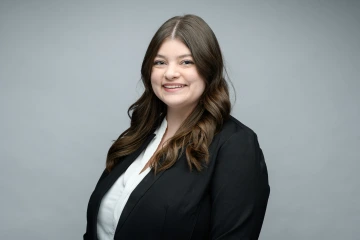
Samantha Davidson-Walrath, Maternal Health Epidemiologist, Arizona Department of Health
Samantha Davidson, MS, is originally from Tucson, Arizona and serves in the Arizona Department of Health Services (ADHS) Bureau of Assessment and Evaluation as a Maternal and Child Health Epidemiologist. She is focused on supporting the Maternal Health Innovation Program and Maternal Mortality Review Program through program evaluation and analysis of maternal health data. She previously worked in opioid overdose surveillance and prevention as a CSTE Applied Epidemiology Fellow with ADHS. Samantha received an MS in Epidemiology and BS in Biomedical Engineering from the University of Arizona. She is passionate about improving the maternal and reproductive health of Arizonans.

Glenda M. Ramirez, Maternal Health Epidemiologist, Arizona Department of Health
Glenda Ramirez currently serves as a Maternal Health Epidemiologist at ADHS, where she supports the Maternal Mortality Review Program, the Maternal Health Innovation Program, and other maternal health initiatives in the Bureau of Assessment and Evaluation. In her former role, she served as the Birth Defects Monitoring Program Epidemiologist, where she participated in the development and design of quality assurance activities and epidemiological investigations regarding birth defects and related conditions for various programs throughout the agency. Glenda is a graduate of George Washington University with an MPH in Epidemiology.
Room 2206
Navigating Interstate Compacts and Telehealth Policy Updates Healthcare and allied health interstate licensure compacts play an increasingly important role in improving access to, and enabling continuity of care, especially as states continue to oversee licensure within their respective boundaries following the end of the Public Health Emergency. While telehealth technology has revolutionized the way providers deliver care beyond physical clinics and hospitals, state licensure requirements can still create challenges for providers seeking to care for patients across state lines. This presentation will highlight the critical role of interstate licensure compacts in addressing these challenges, with a focus on Arizona’s leadership as a nationwide model for adopting compacts. Additionally, recent telehealth policy changes and their impact will be discussed.
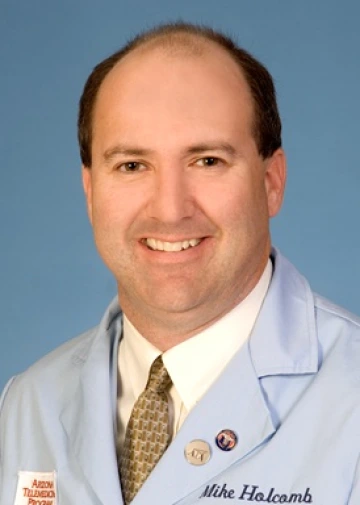
Michael Holcomb, Interim Director & Associate Director, Information Technology, Arizona Telemedicine Program
Michael J. Holcomb, BS, is the interim director for the Arizona Telemedicine Program (ATP) and is also ATP’s associate director for information technology. He leads the Arizona Telemedicine Council’s quarterly meetings, serves as an instructor on privacy and cybersecurity in ATP training programs, has co-authored peer-reviewed publications about telemedicine and telehealth, and is a past chair of the Technology Special Interest group of the American Telemedicine Association.

Carrie Foote, Associate Director, Administration, Arizona Telemedicine Program
Carrie Foote, BA, BS holds the position of Associate Director of Administration at the Arizona Telemedicine Program. In her capacity, she exercises administrative oversight for the ATP. Ms. Foote represents this organizations at regional and national meetings, assuming responsibility for the creation and curation of public relations materials. Additionally, she plays a pivotal role in fulfilling reporting obligations and coordinating activities for the ATP and the numerous partnering organizations. Ms. Foote also serves as the editor for ATP's blogs.
HSEB B302
AHCCCS Housing and Health Opportunities (H2O)
The Arizona Health Care Cost Containment System (AHCCCS) received waiver and expenditure authority to implement the AHCCCS Housing and Health Opportunities (H2O) demonstration. The goal of the AHCCCS H2O demonstration is to enhance and expand housing services and interventions for AHCCCS members who are homeless or at risk of becoming homeless. Under this demonstration proposal, the agency will seek to: Increase positive health and wellbeing outcomes for target populations including the stabilization of members’ mental health conditions, reduction in substance use, improvement in the utilization of primary care and prevention services, and increased member satisfaction, Reduce the cost of care for individuals successfully housed through decreased utilization of crisis services, emergency department utilization, and inpatient hospitalization, and Reduce homelessness and improve skills to maintain housing stability. During the presentation we will discuss the program, policies, and integration of housing and healthcare. We will also provide information around implementation and program updates, noting the program went live 10/01/2024.

Elizabeth da Costa, Director of Housing, AHCCCS
Elizabeth da Costa serves the agency as the Director of Housing. In this role she oversees the contract for the Statewide Housing Administrator which provides rental subsidies to nearly 2,500 members across the state of Arizona. She also assists the team with oversight of the SMI Housing Trust Fund, distributing capital dollars to financially support new housing developments designed to serve members with a Serious Mental Illness. Elizabeth came to AHCCCS in October of 2022 having worked for a local non-profit for 13 years. In her prior role she was the Senior Director of Housing and Community Integration and has experience overseeing multiple grants that span across the housing continuum from outreach and shelter to rapid rehousing and permanent supportive housing programs. Elizabeth has direct experience serving our communities most vulnerable populations, including experience serving as a Clinical Coordinator for a Forensic Assertive Community Treatment in Maricopa County.

Jenn Courim, H2O Program Manager, AHCCCS
Jenn Courim brings 9+ years of professional and leadership experience managing statewide programs in Behavioral Health, Child Welfare, and Housing. Currently serving as Program Manager at AHCCCS with the State of Arizona, Jenn oversees the Housing and Health Opportunities Program (H2O). Jenn provides oversight, monitoring, and implementation of the H2O program to achieve positive outcomes, growth and success of the demonstration, while maintaining alignment with CMS terms and conditions and federal and state policies. Jenn has a proven ability of driving program growth and development through collaboration, community engagement, and innovative solutions. She is passionate about enhancing the outcomes of vulnerable populations by continuous improvement of care and quality of service delivery.
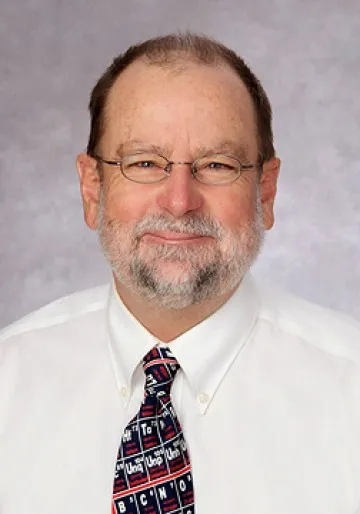
Will Humble, Executive Director, Arizona Public Health Association
Will Humble is a long-time public health enthusiast and is currently the Executive Director for the Arizona Public Health Association (AzPHA). His 40 years in public health include more than 2 decades at the Arizona Department of Health Services, where he served in various roles including as the Director from 2009 to 2015. He continues to be involved in health policy in his role as the Executive Director for the AZPHA. Will is a believer in using evidence-based health policy to improve health outcomes and in leading and managing with emotional intelligence. Follow him on Twitter @willhumble_az
2025 Arizona Rural & Public Health Policy Forum Photo Gallery

Estefania Mendivil and Susan Coates of the Arizona Center for Rural Health

Will Humble, Mona Arora, Jill Bullock

L-R: Jennifer Smith, Nancy Johnson, Eladio Pereira, Alan Michels
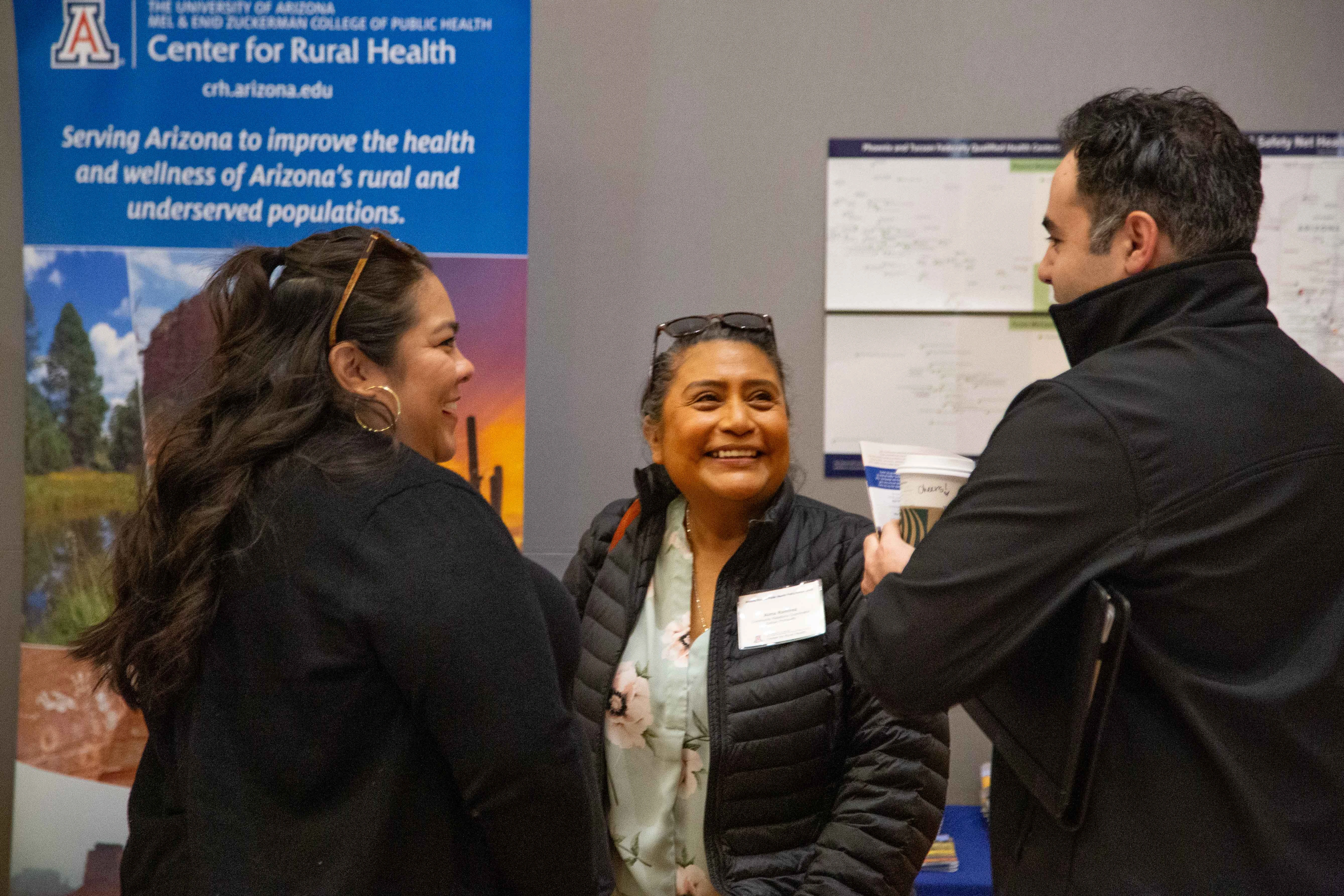
L-R: Tashina Machain, Alma Ramirez, Jeffery Hanna
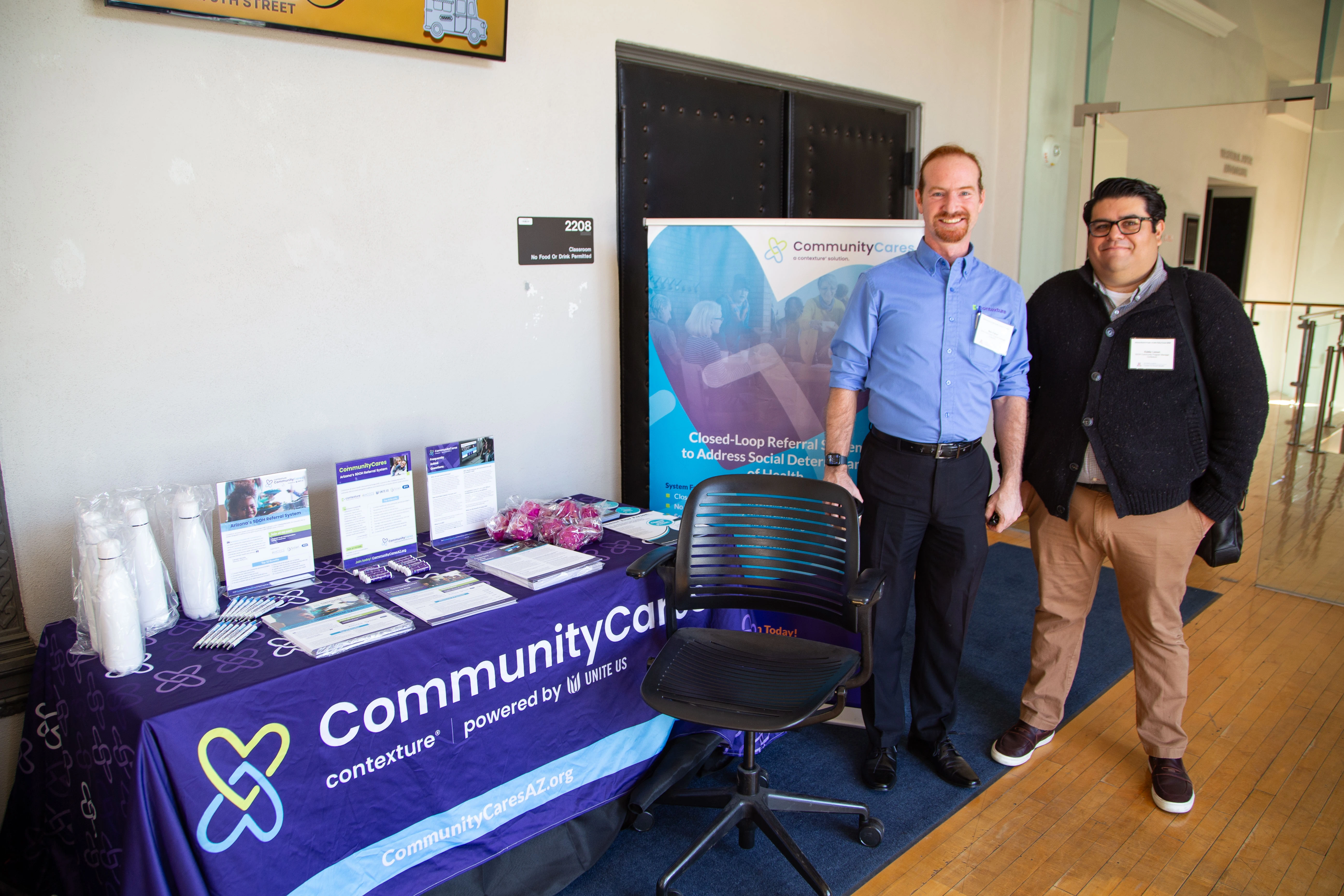
Ben Fisher with Contexture and guest

Melissa Quezada, Pam Barnes, and Brianna Rooney of AzCRH

Dr. Derksen opens the Policy Forum

Zaida Dedolph Piecoro, Health Policy Advisor, Office of the Governor
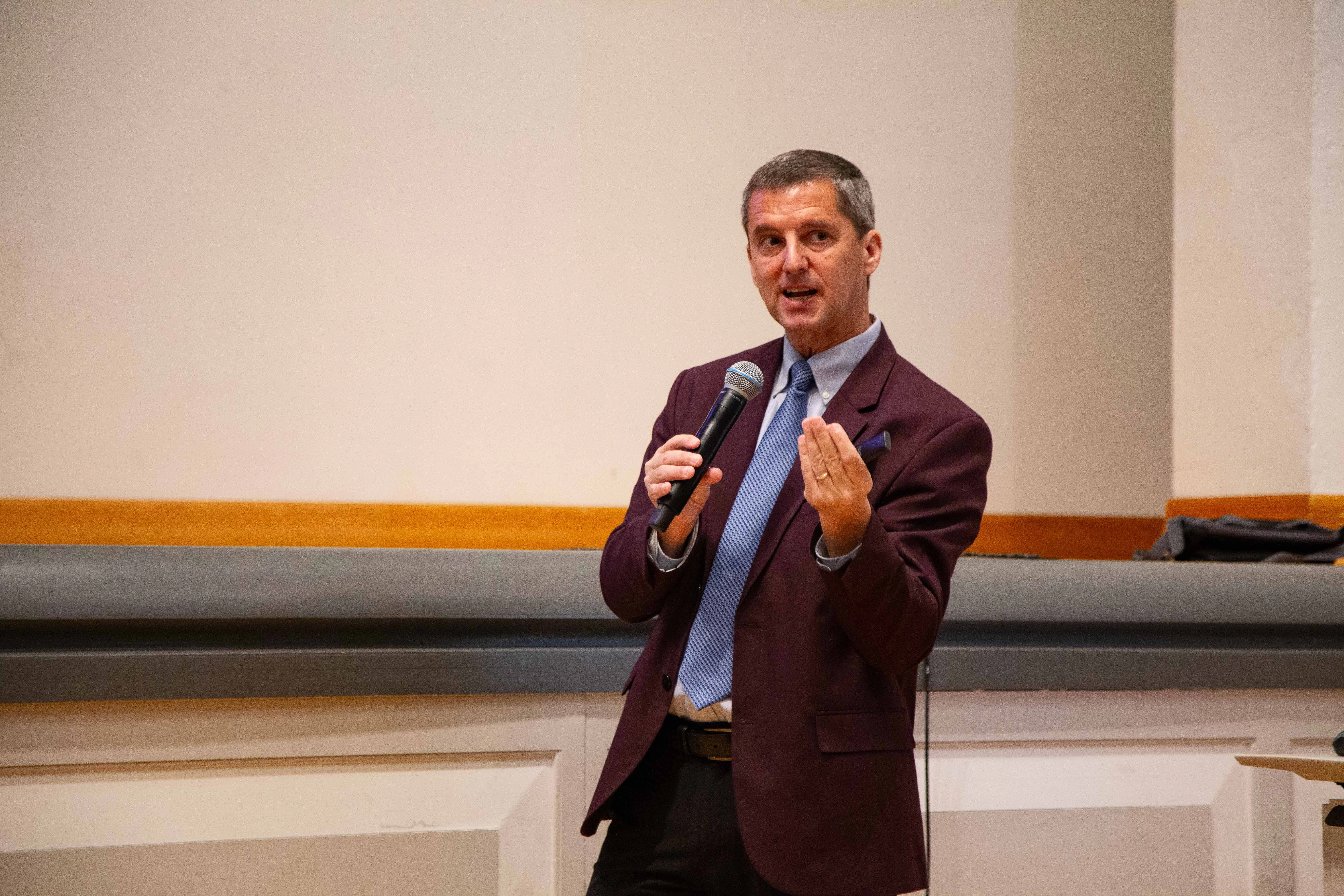
James G. Hodge, Jr. JD, LLM

Leila Barraza and James G. Hodge
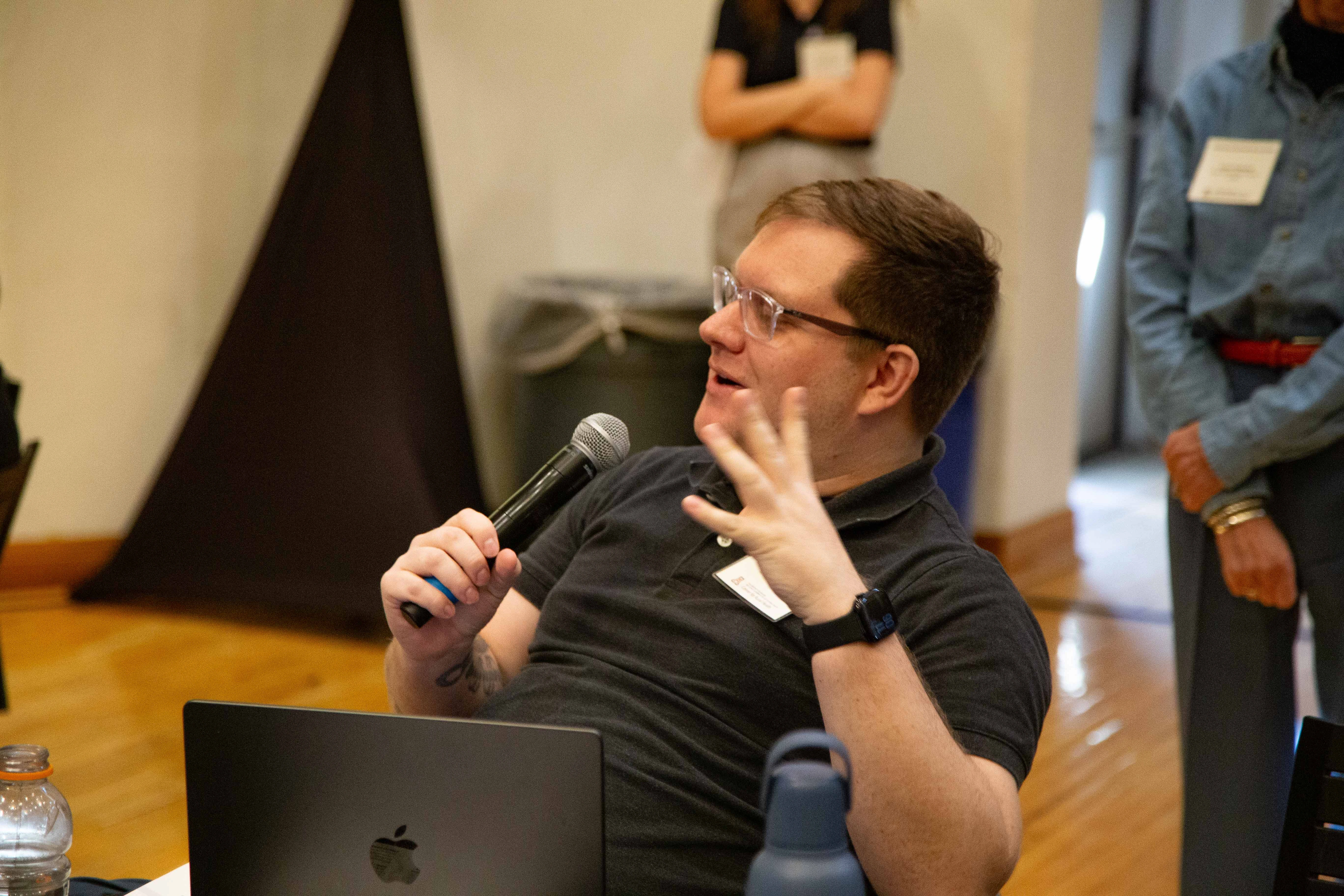
a member of the audience asks a question

Leila Barraza and James G. Hodge answer questions

Jonathan Cartsonis talks with Cheryl O'Malley and Amanda Aguirre

L-R: Eliana Richards, Nancy Johnson

Nancy Johnson talks with a student

Mona Arora presenting in a breakout session
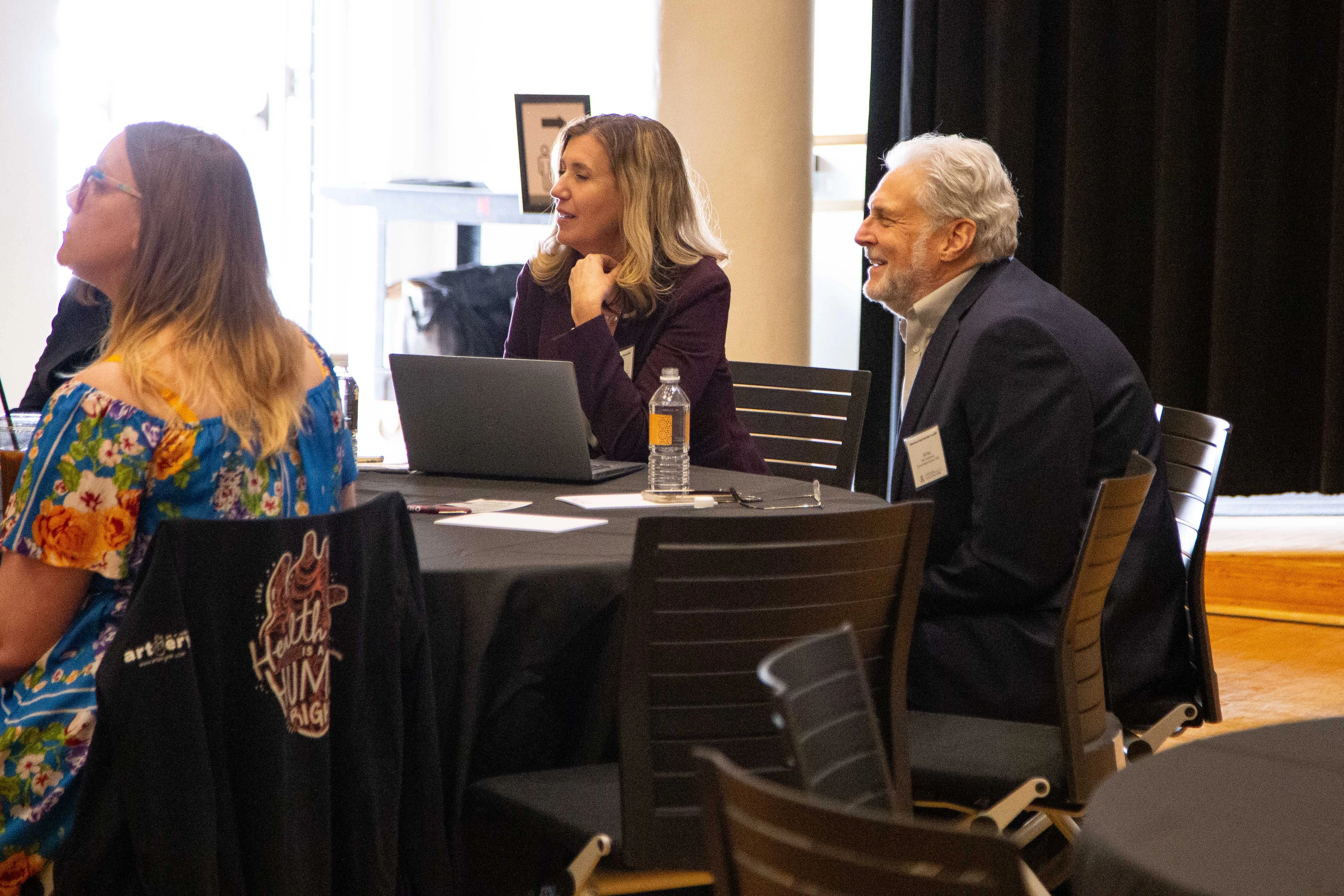
Katie Brite and Ed Paul
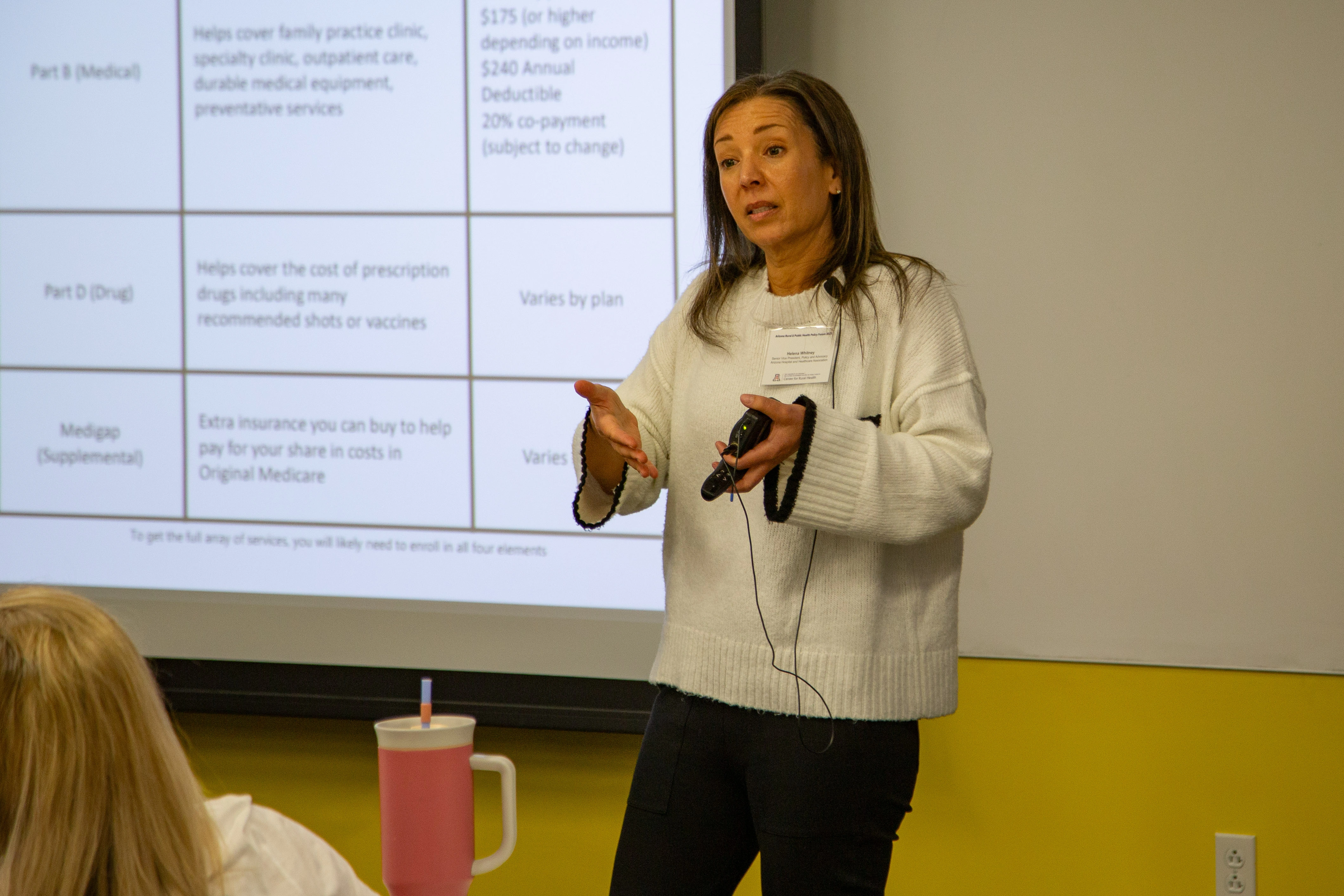
Helena Whitney, Senior Vice President, Policy and Advocacy, Arizona Hospital and Healthcare Association

Kim Russel asks a question

Corey Hemstreet and Mckayla Keams with Arizona Advisory Council on Indian Health Care (AACIHC)

Leila Barraza and Ed Paul

L-R: Eladio Pereira, Ergi Gumusaneli, Dan Derksen

Dr. Dan Derksen and Attorney General Kris Mayes
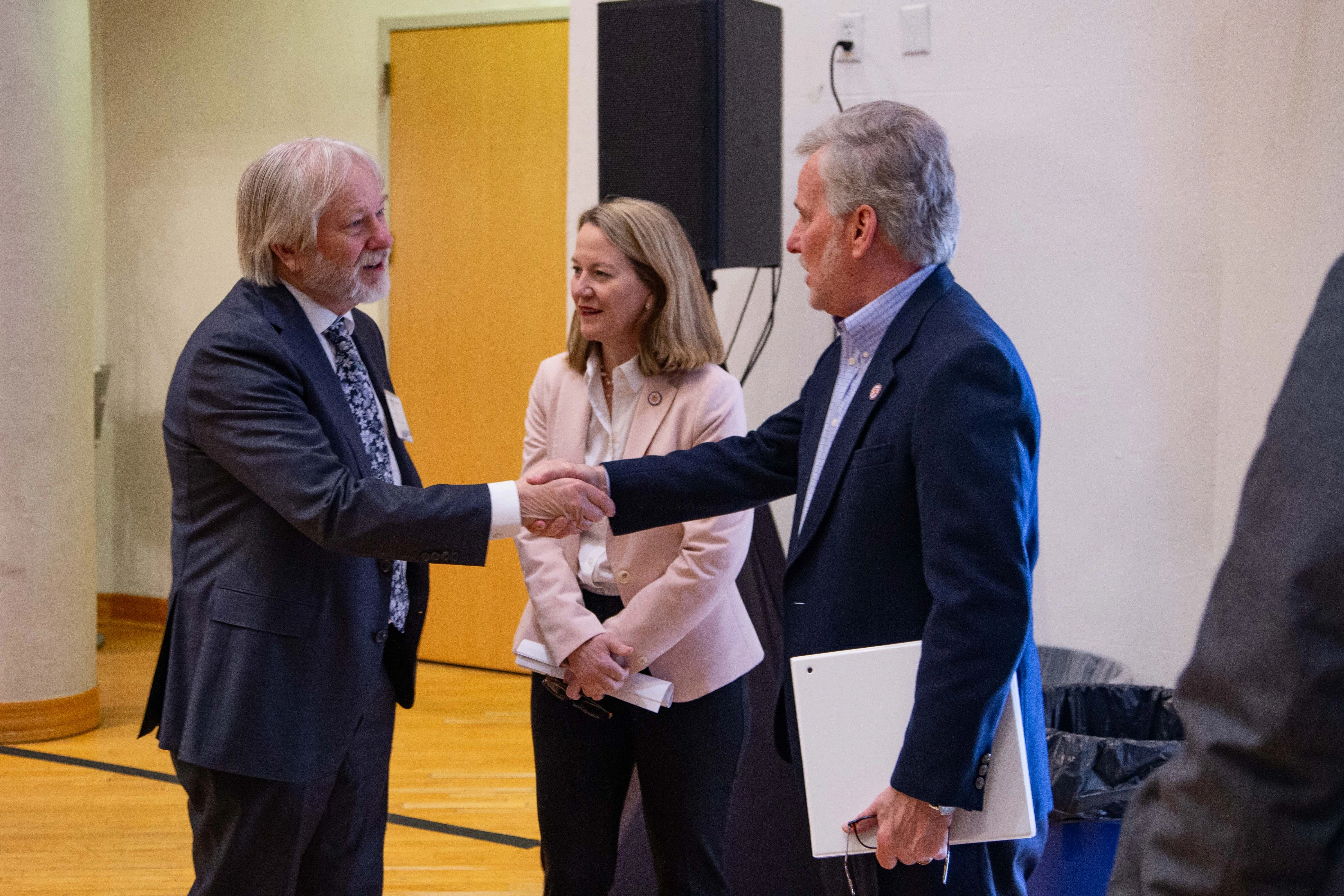
L-R: Dr. Derksen, Attorney General Kris Mayes, Deputy Attorney General Bill Mundell

L-R: Dr. Derksen, Attorney General Kris Mayes, Deputy Attorney General Bill Mundell
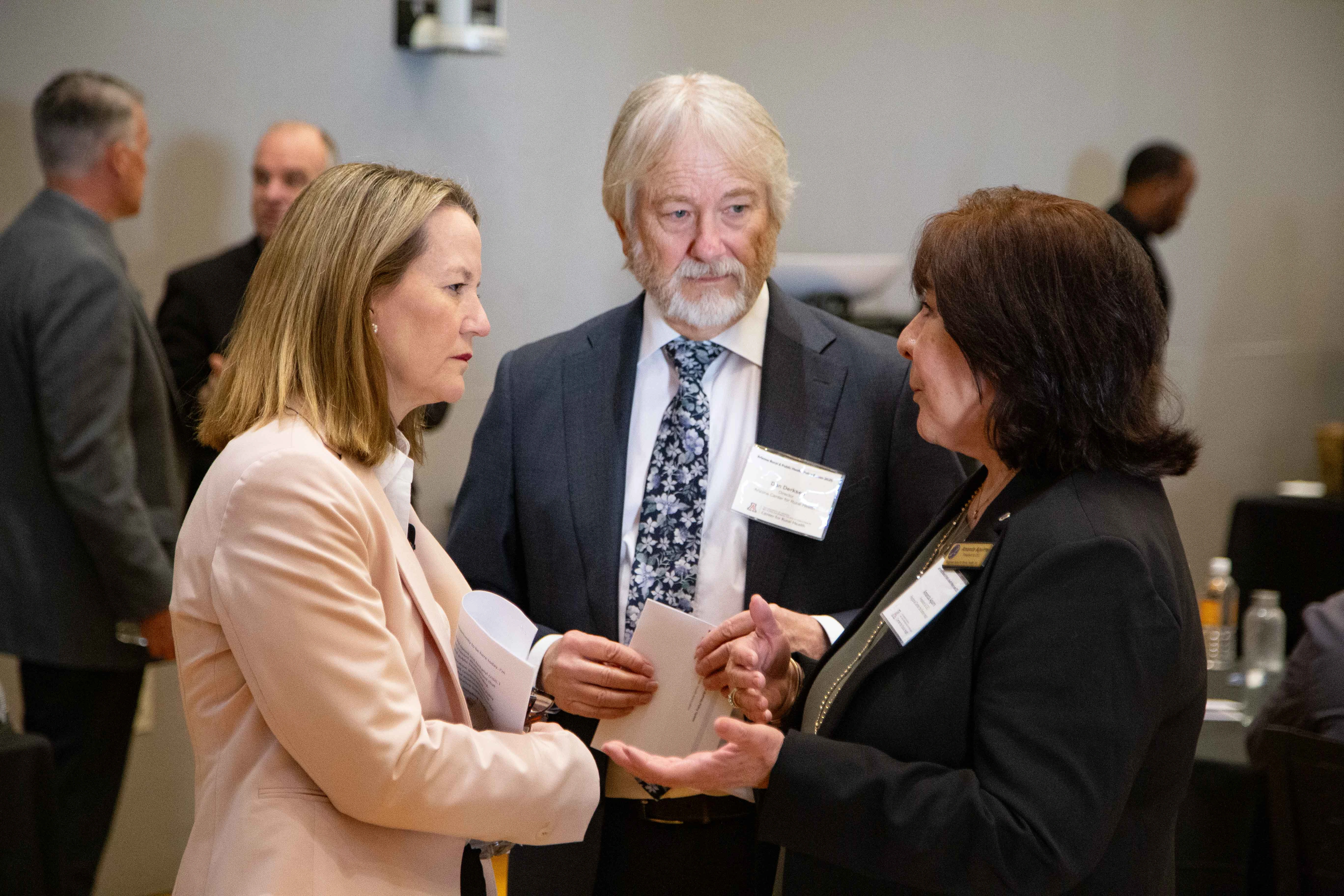
Attorney General Kris Mayes, Dr. Dan Derksen, Amanda Aguirre
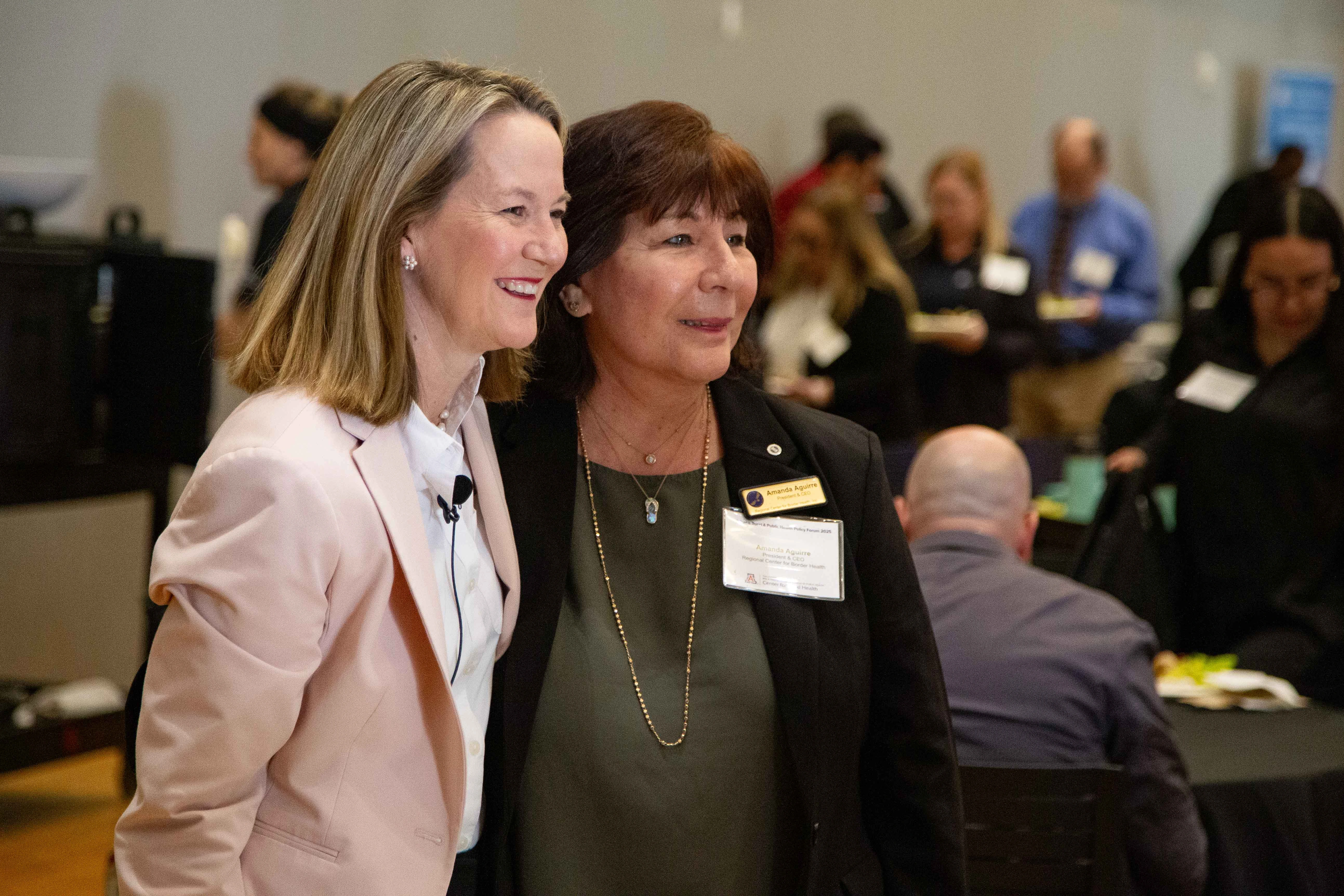
Attorney General Kris Mayes with Amanda Aguirre

Attorney General Kris Mayes

Attorney General Kris Mayes and Dr. Derksen

Attorney General Kris Mayes shakes Dr. Derksen's hand

Samantha Davidson-Walrath and Glenda Ramirez

Will Humble

Leila Barraza and Marni Valenzuela
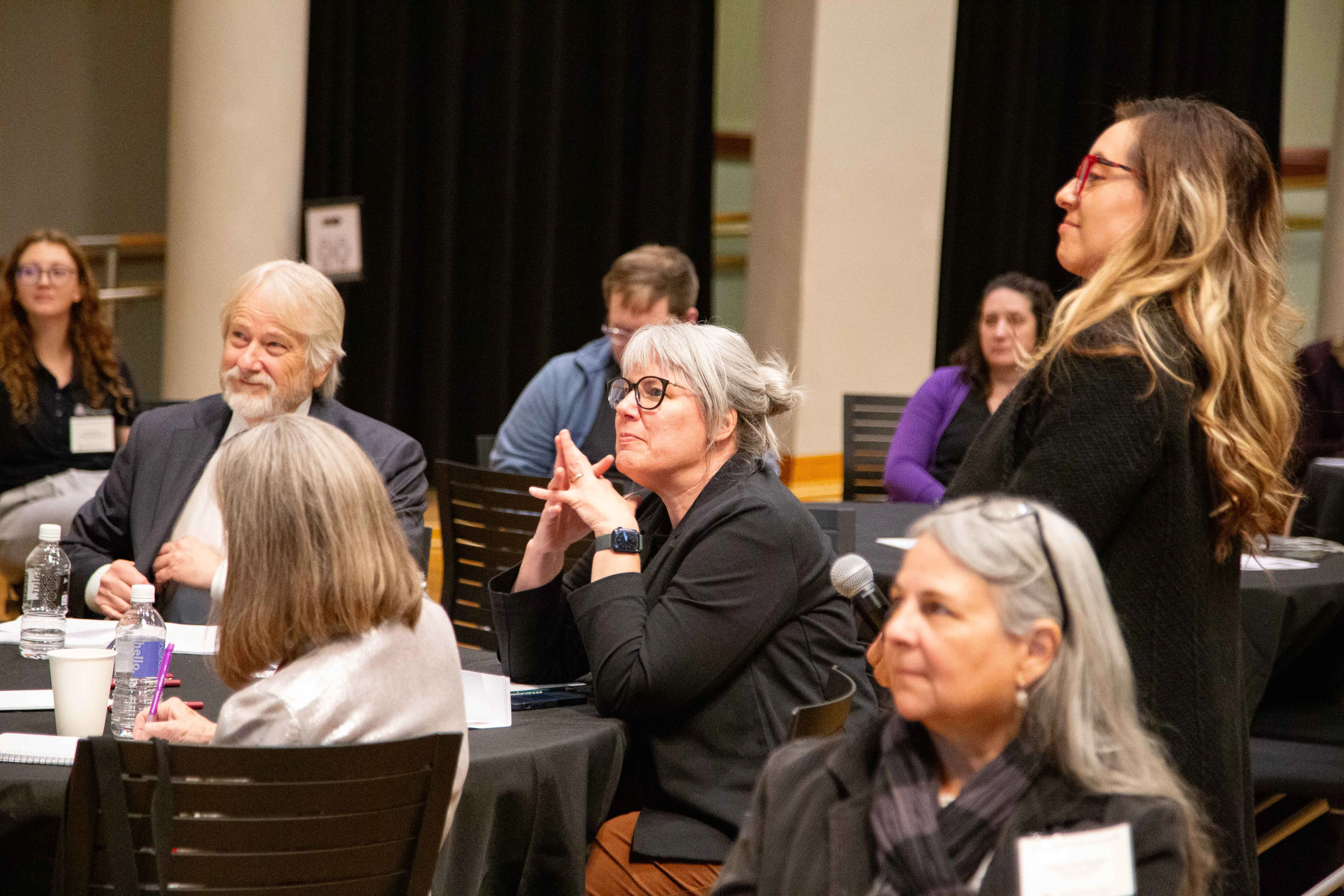
L-R: Dan Derksen, Jennifer Peters, Sonia Cotas-Robles, Rocio Torres (standing)

Will Humble asks a question

James G. Hodge answers a question, Leila Barraza

Leila Barraza and James G. Hodge

Regional Center for Border Health

Erin McMahon talks with Nancy Johnson and Salma Patel

James G. Hodge talks with audience

McKayla Keams presenting

Attorney General Kris Mayes

Attorney General Kris Mayes

Ergi Gumusaneli

Kang Xiaoxu

L-R: Robert Guerrero, Will share notes
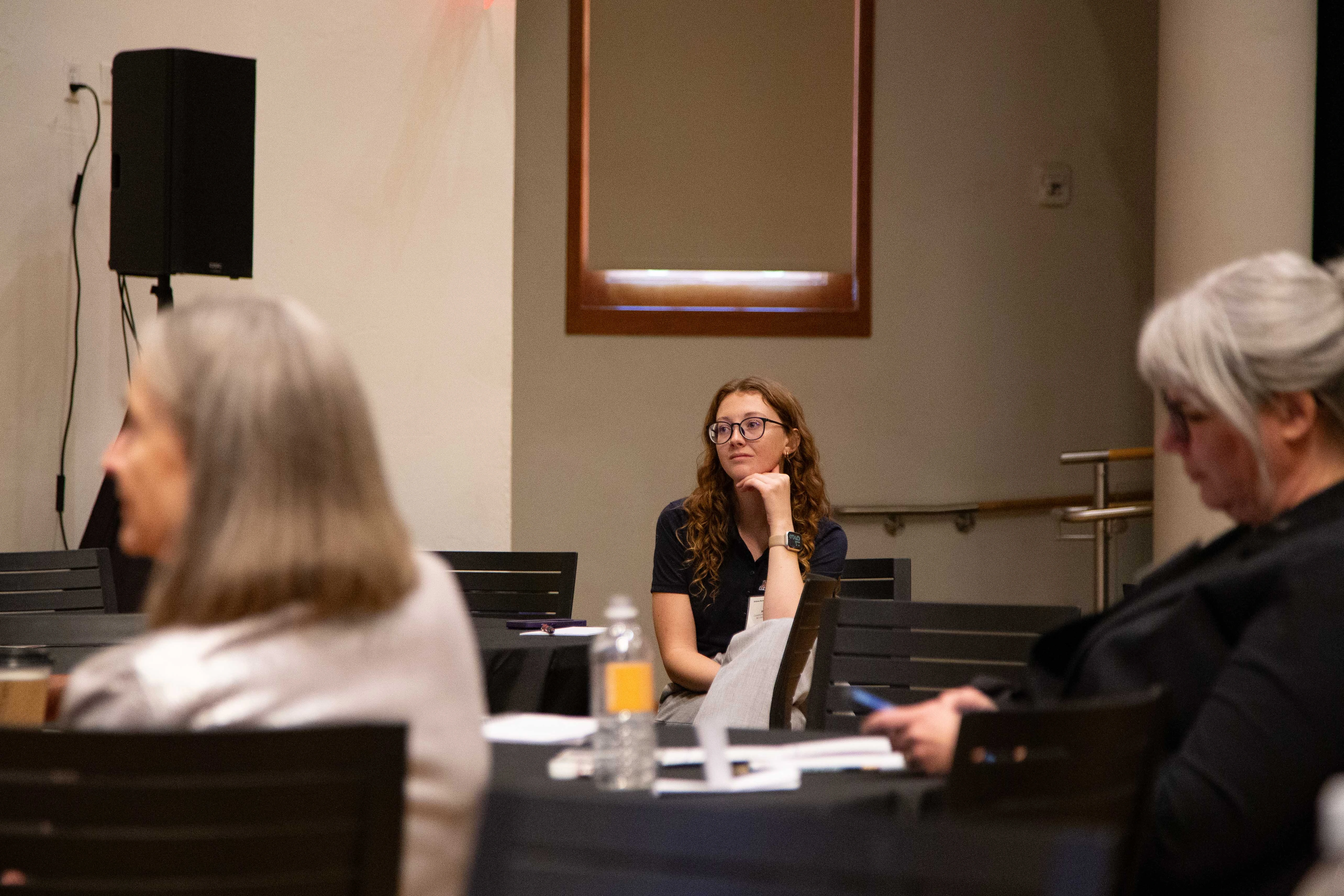
Mariah Erhart, Arizona Center for Rural Health


